Southern Africa - South Africa, Botswana, Zimbabwe, Zambia, Namibia
August 23 - September 15, 2016
Part Three, Page Three - Hwange National Park, Zimbabwe
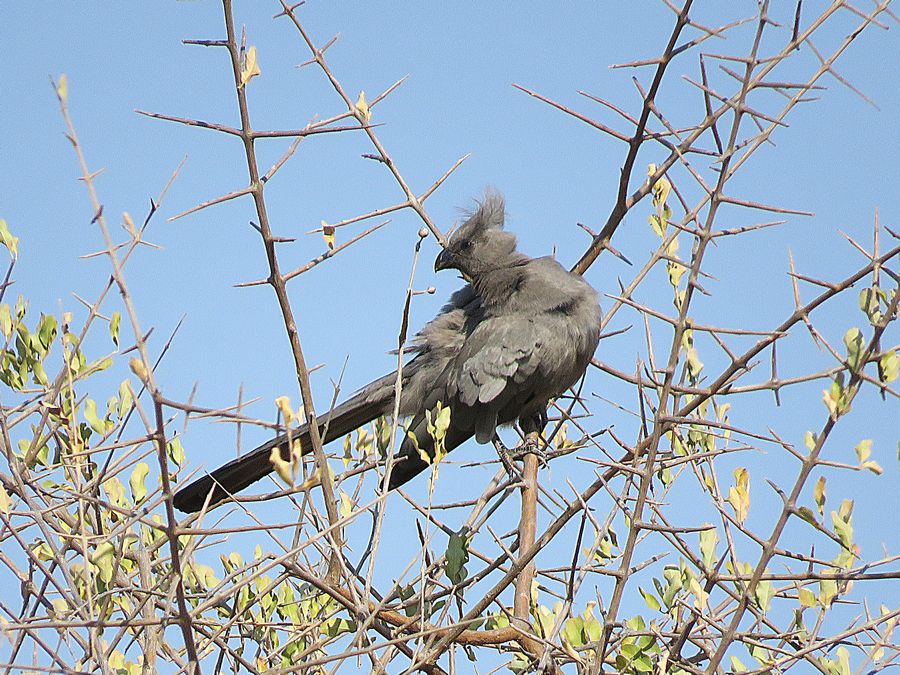
Grey Go-Away Bird - They are present in arid to moist, open woodlands
and thorn savanna, especially near surface water. They often form
groups that forage in tree tops, or dust bathe on the ground. Especially
when disturbed, they make their presence known by their characteristically
loud and nasal "kweh" or "go-way" calls. Its diet is mainly fruit, flowers,
buds, leaves, termites, and snails.
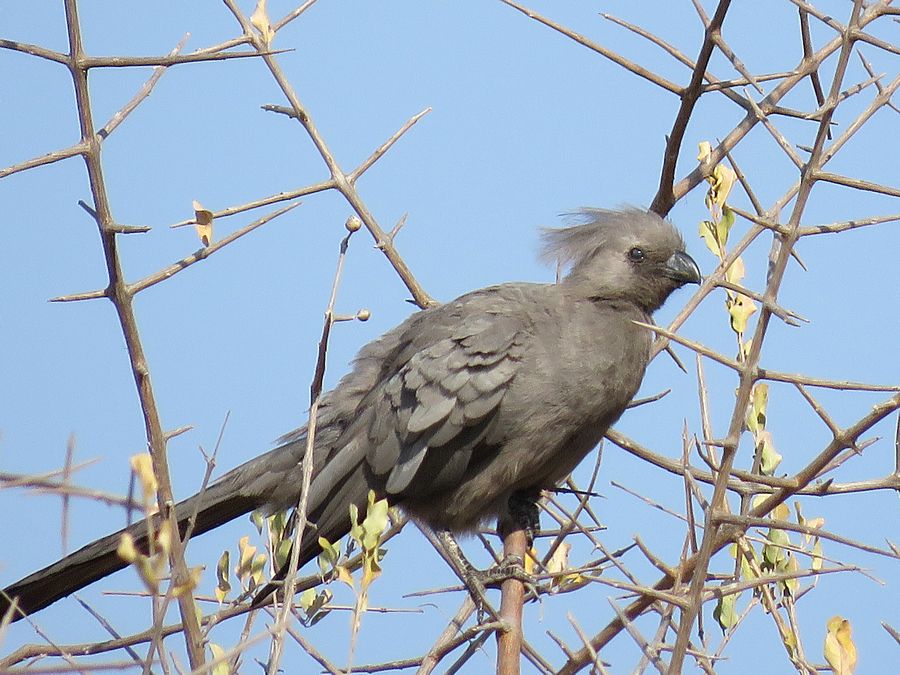
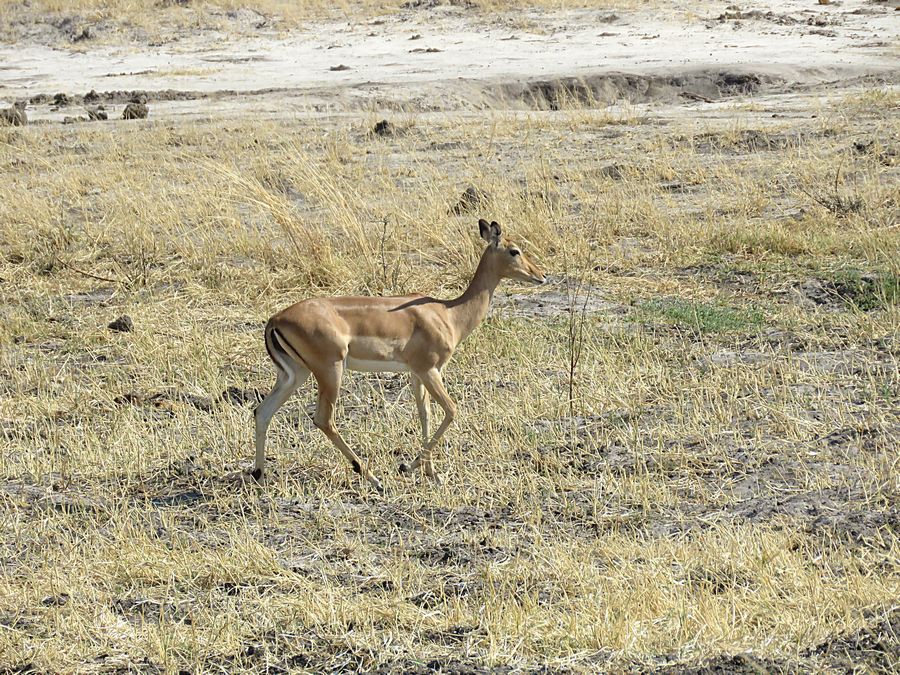
Female impala. We saw impalas in many locations.
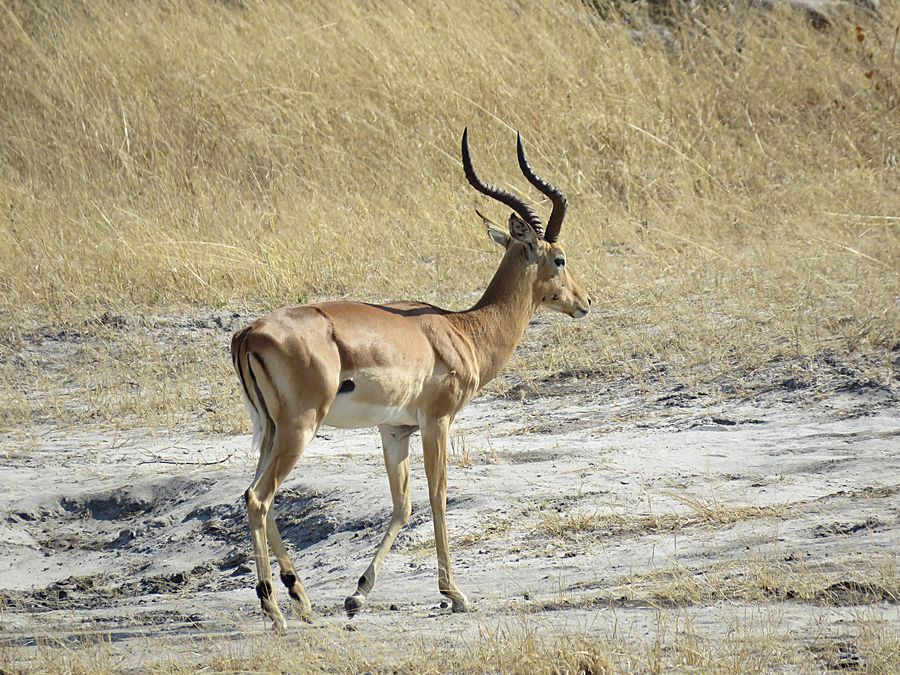
A male impala
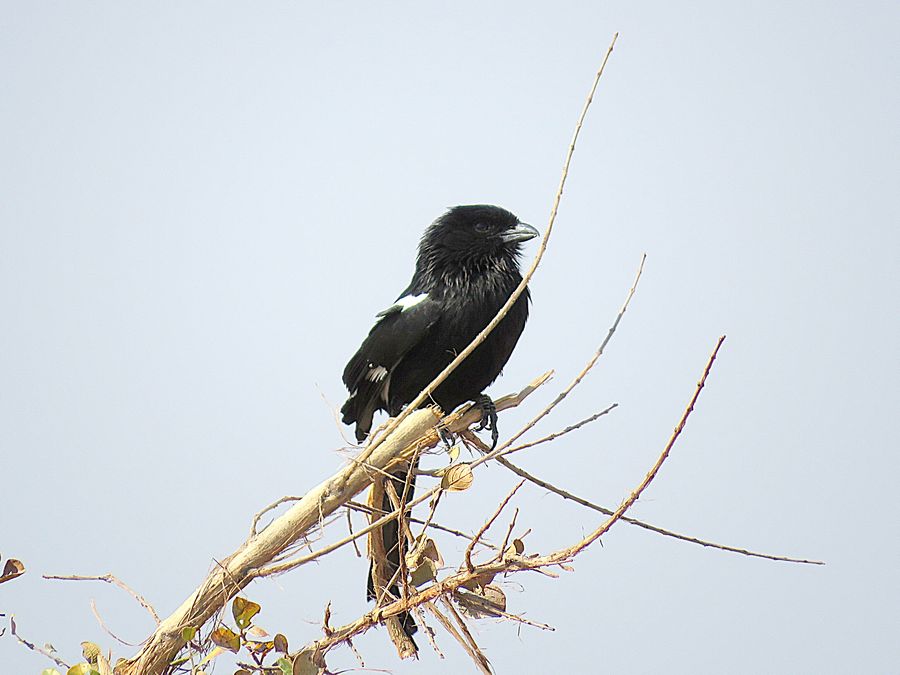
The magpie shrike, also known as the African long-tailed shrike,
Its natural habitats are dry savanna, moist savanna, and subtropical
or tropical dry shrubland and it feeds on arthropods, insects, lizards,
mice, fruit and carrion.
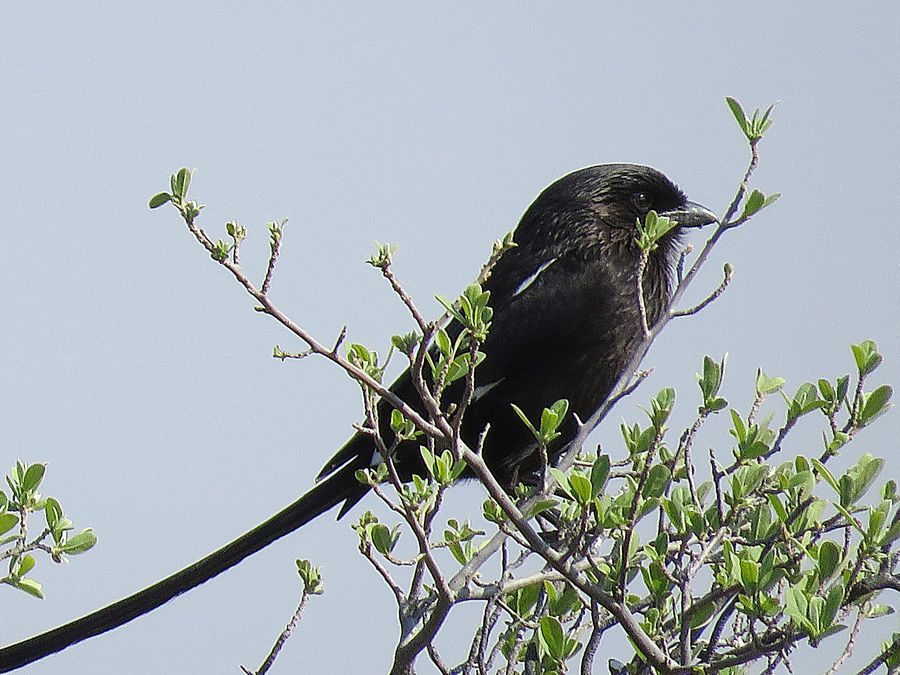
Another magpie shrike
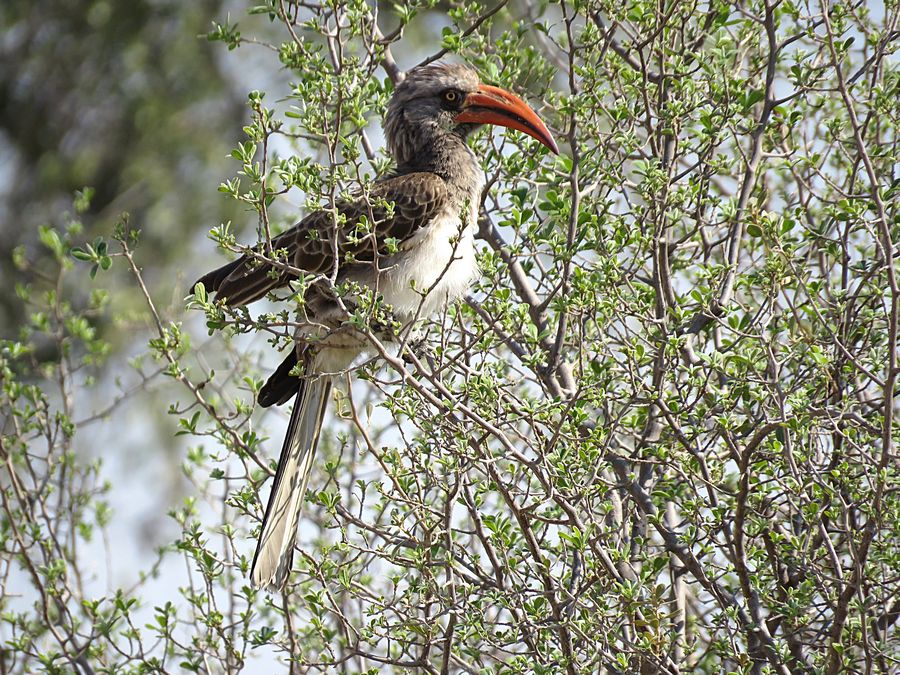
Another Bradfield's Hornbill - quite a striking bird
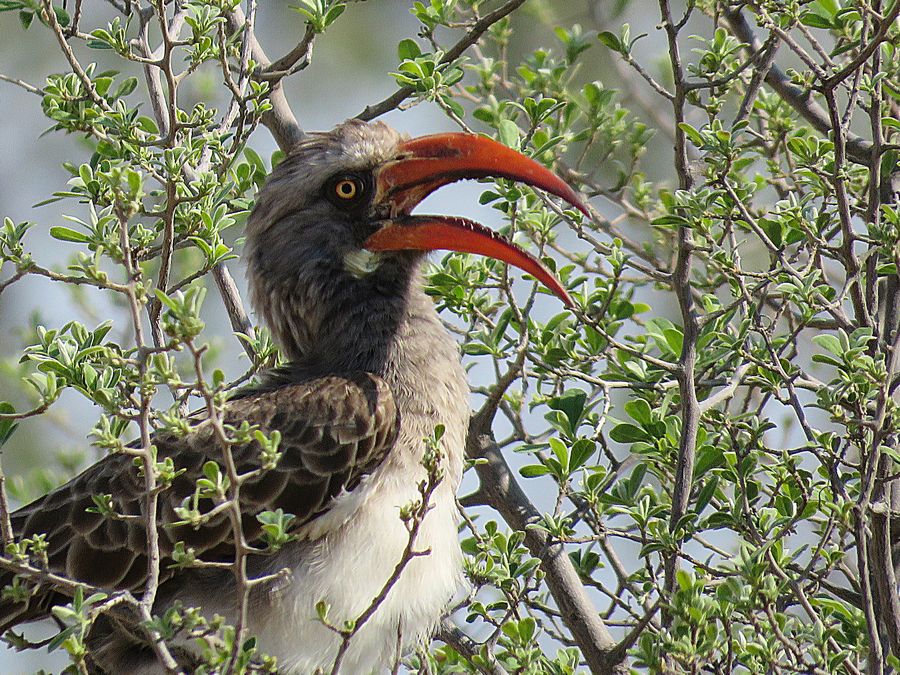
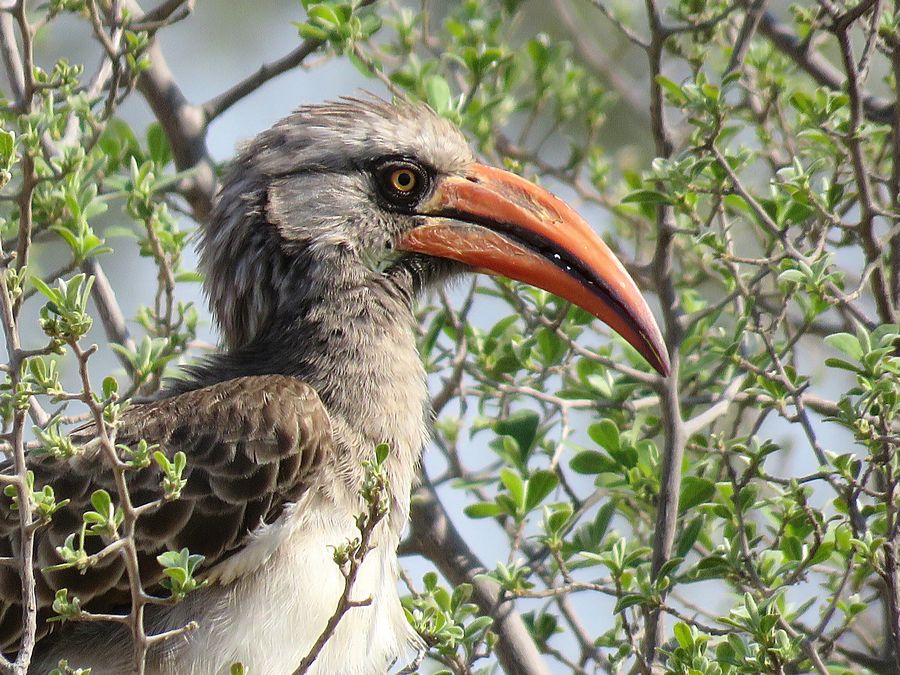
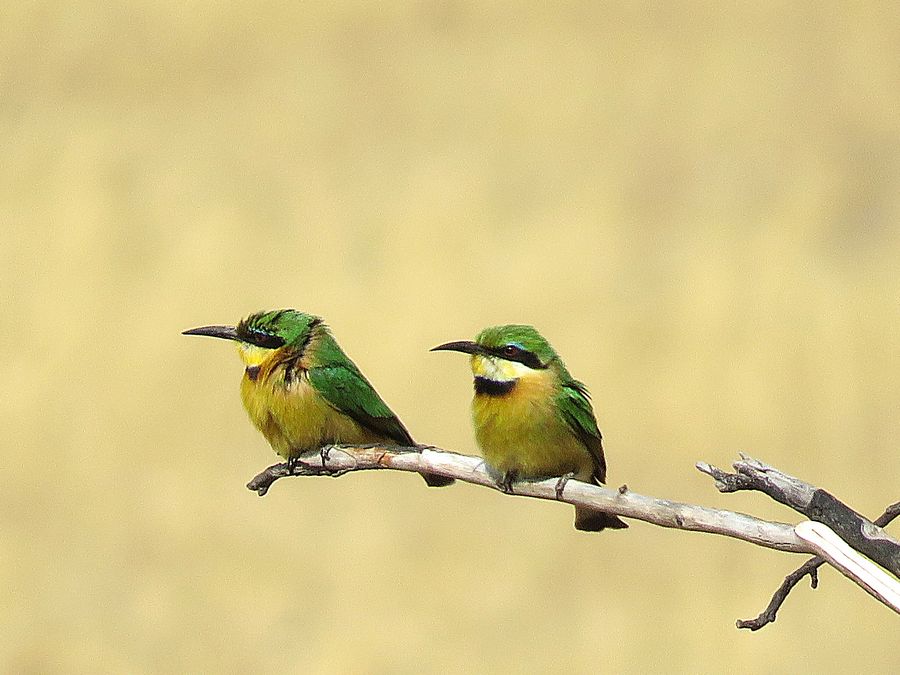
Swallow-tailed bee-eater: predominantly green. As name suggests,
they eat bees and other insects.
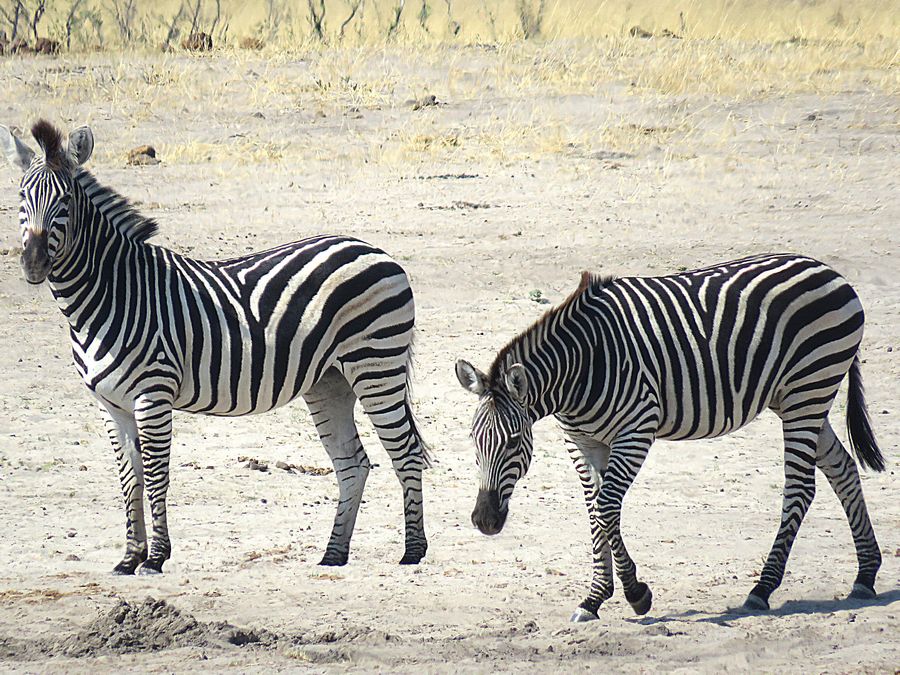
Zebras near a watering hole and a designated rest stop
in Hwange N.P.
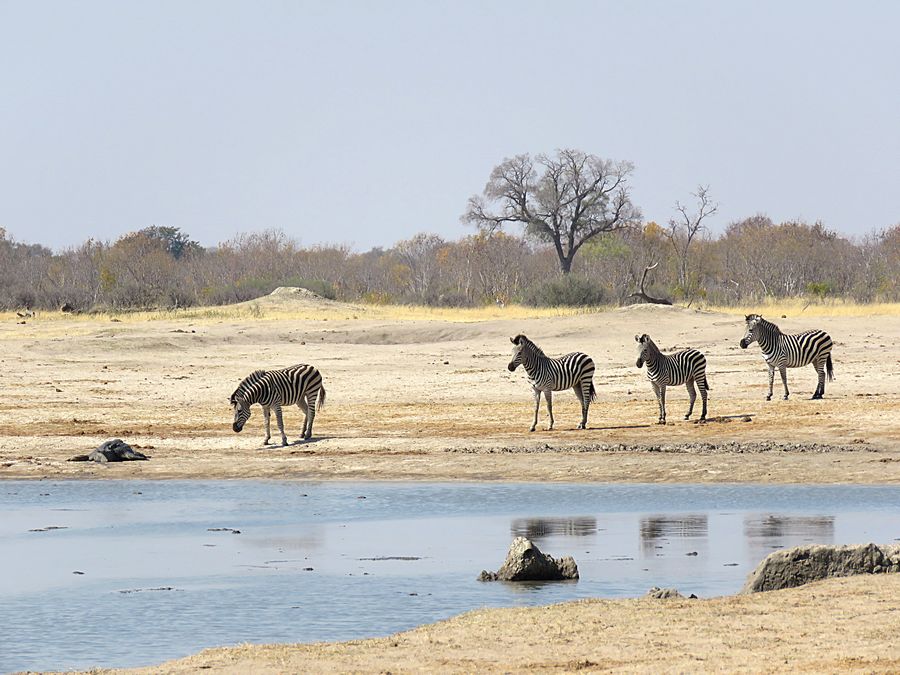
Zebras arriving at the watering hole. Note the dark blob to
the left of the zebra that is closest to the water.
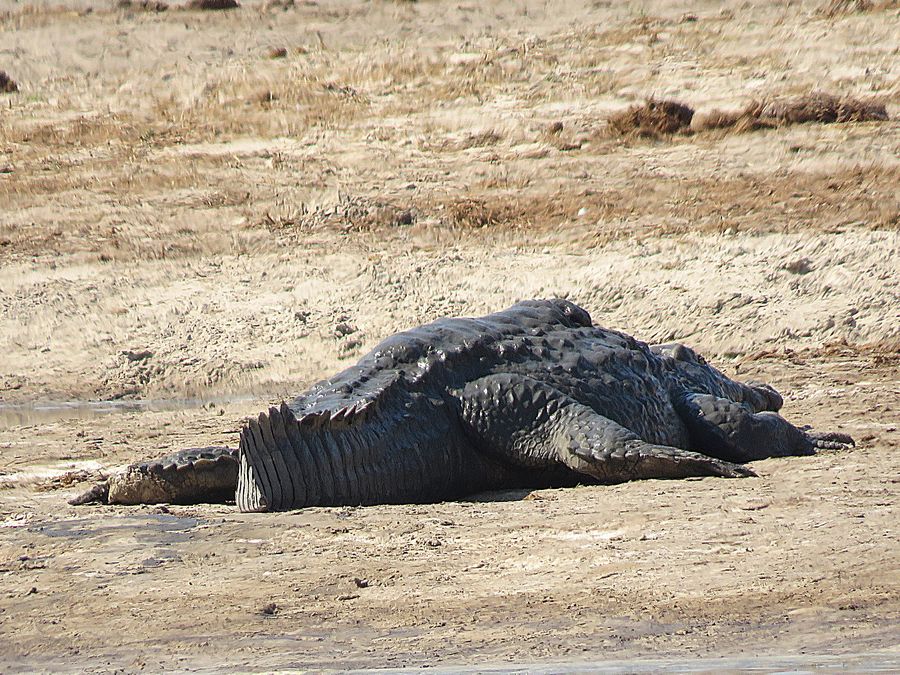
That blob is a crocodile. The zebras were coming very close to it!
It appears that the croc had recently gotten out of the water,
since the skin looks quite wet.
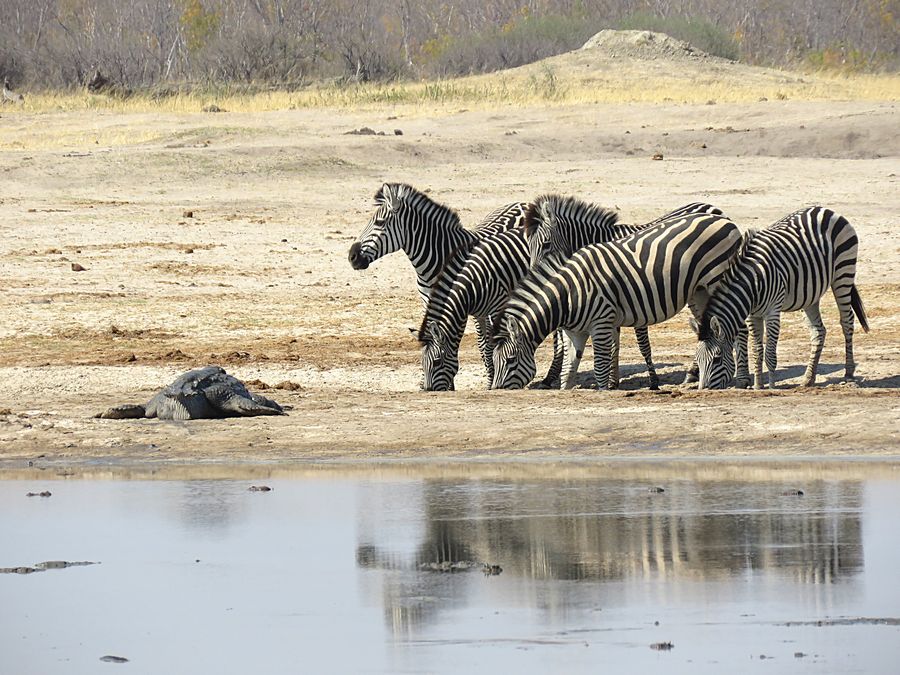
We were quite nervous watching these zebras drinking
so very close to the crocodile, but nothing happened.
There was another crocodile out of the water a few
hundred yards from this one.
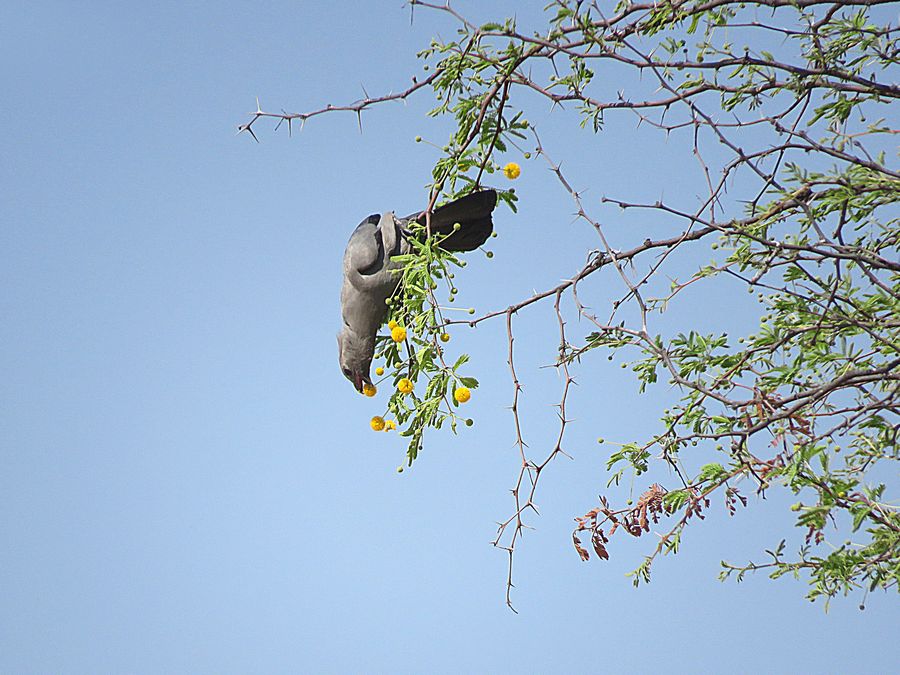
Nearby a grey go-away bird was eating.

A female zebra nursing her foal not far from the watering hole.
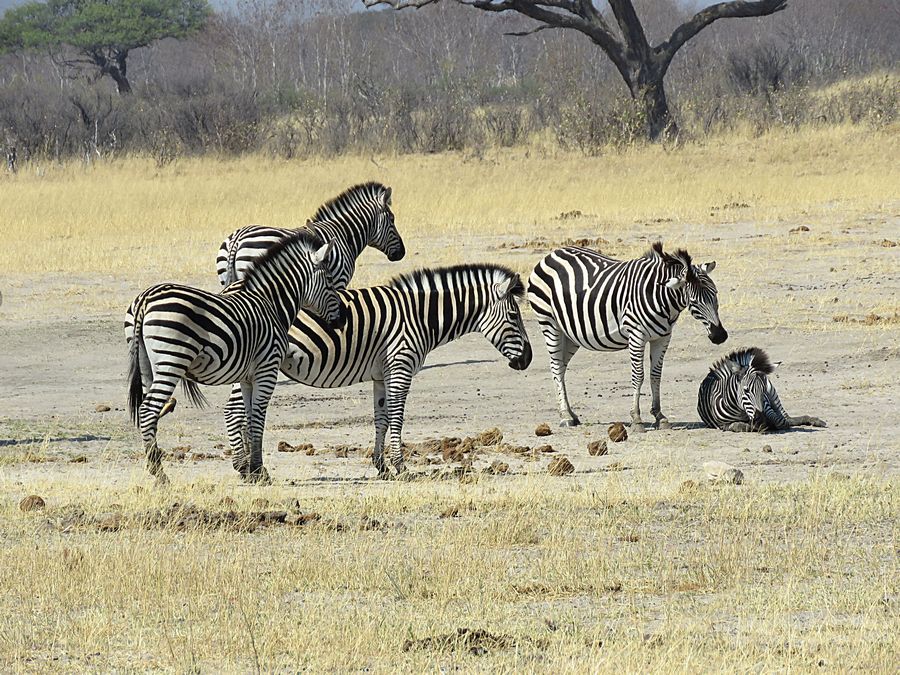
A foal resting while mom watches over it.
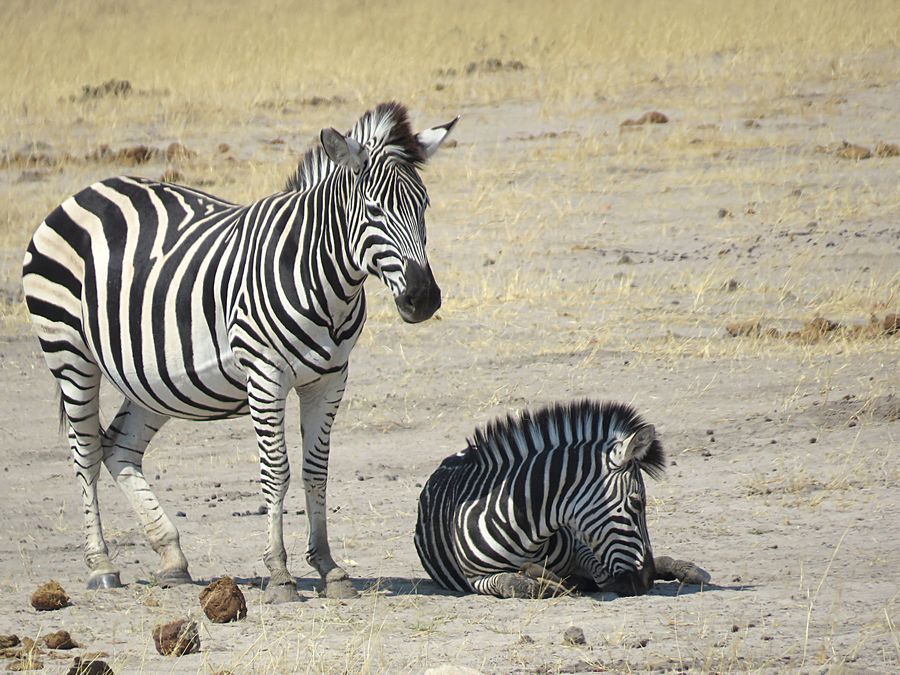
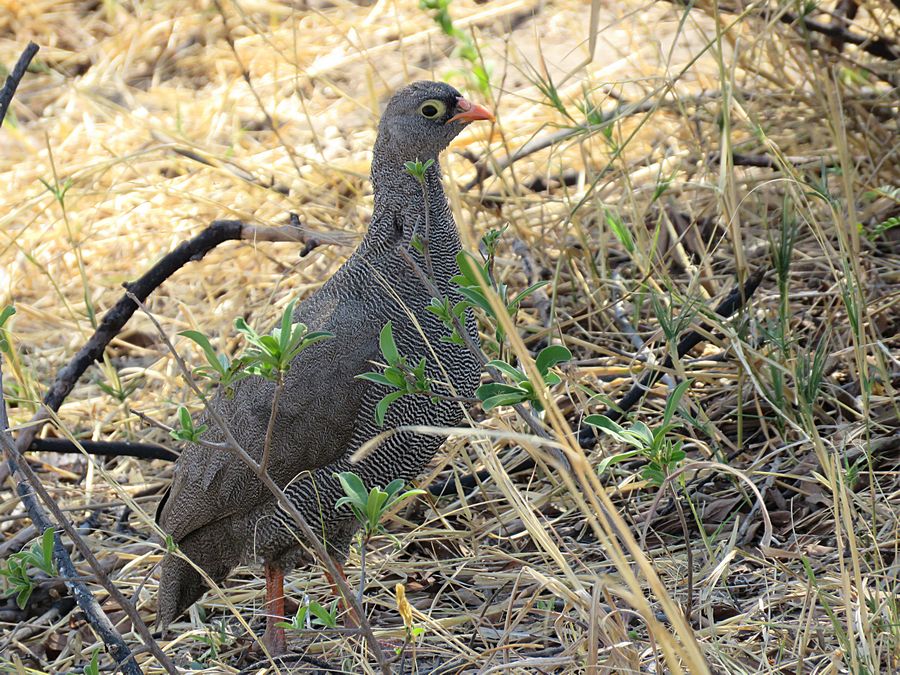
Red-billed spurfowl - Has a reddish bill with yellow eye ring.
Also formerly known as the red-billed francolin.
Their habitat is reasonably dry savanna with a typical
vegetation of Acacia and mixed woodlands, thickets in open
ground, low scrub and the edges of Acacia woodland on Kalahari sand.
They are not usually far from water.
A feature of their diet and behavior is to search through the droppings
of large game animals at waterholes for undigested seeds as well as
invertebrates sheltering under the actual droppings. They also eat
bulbs, tubers, fruits, berries and seeds. Grasshoppers, ants, termites
and molluscs also are eaten, and they are particularly fond of fruits
of the devil-thorn tree.
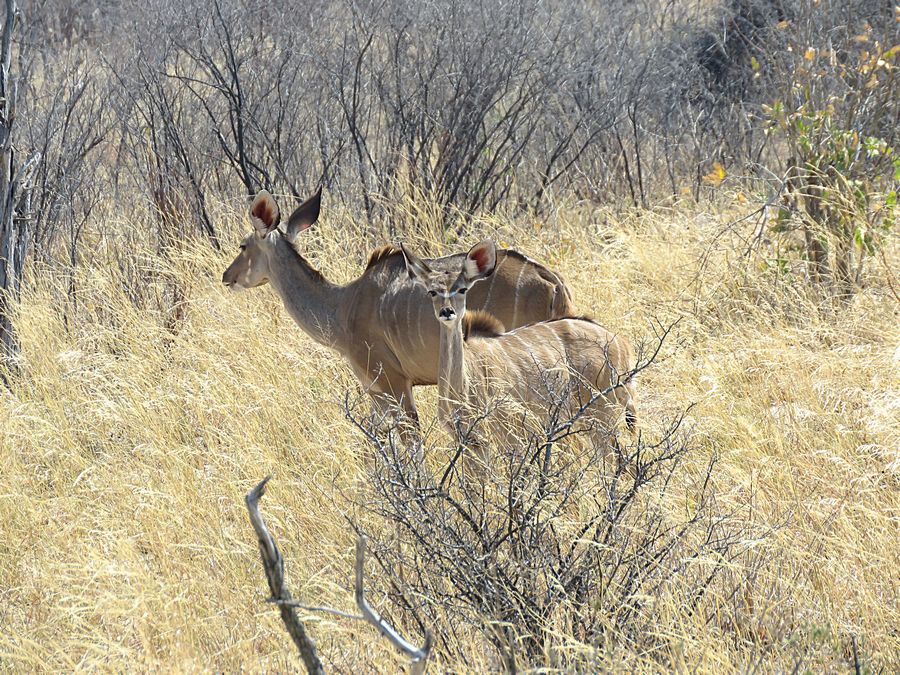
Female kudu with young one
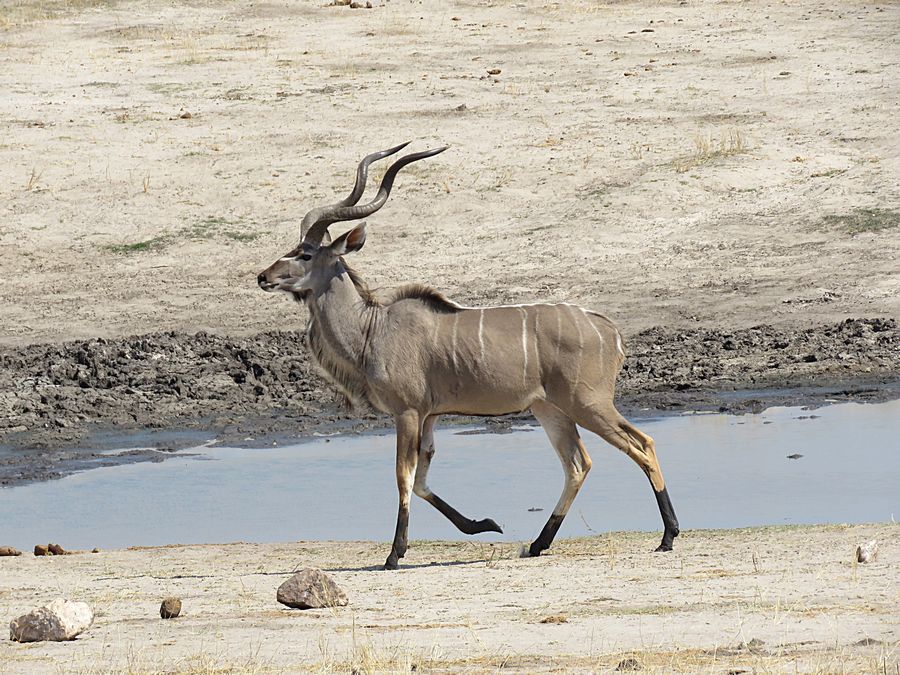
Male kudu

Kennedy, one of our local guides, at sign showing rest areas
named after
him for his 20 years of anti-poaching work

Close-up of our local guide Kennedy
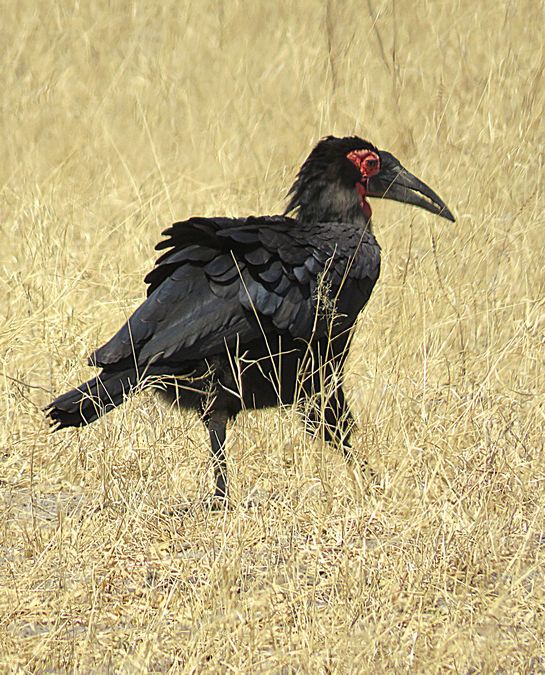
Ground Hornbill
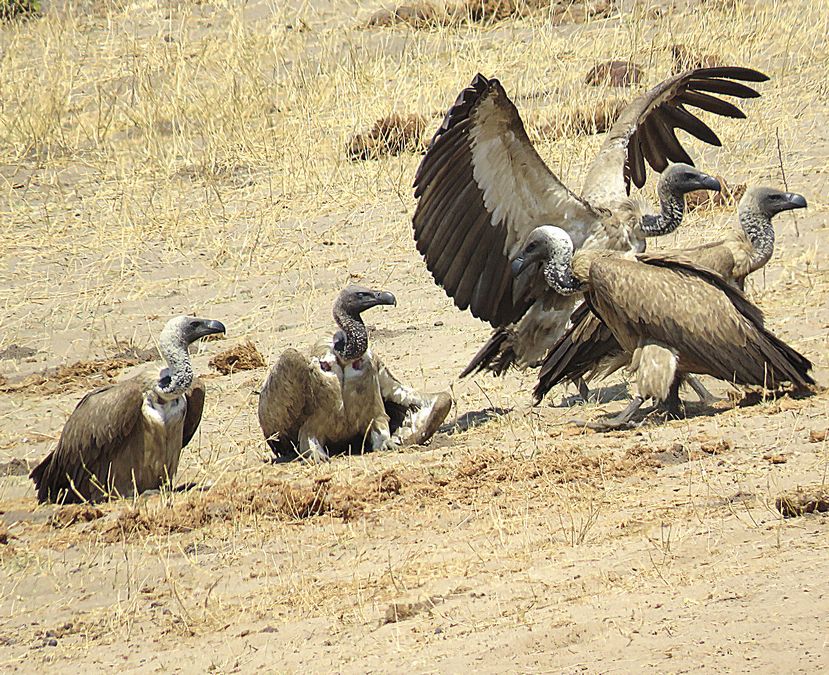
White-backed vultures
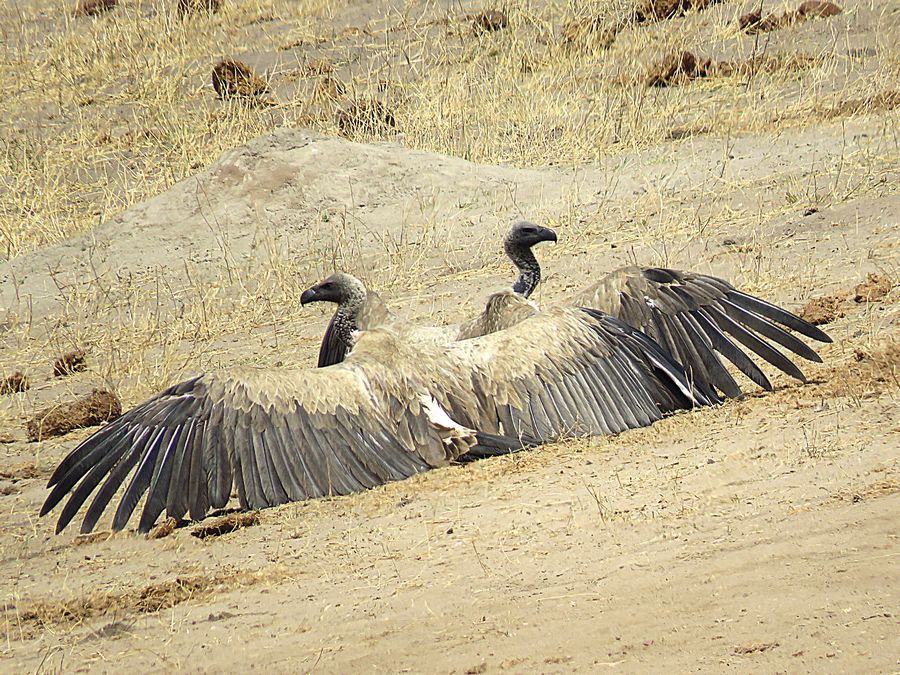
The white-backed vultures are spreading their wings
to dry them.
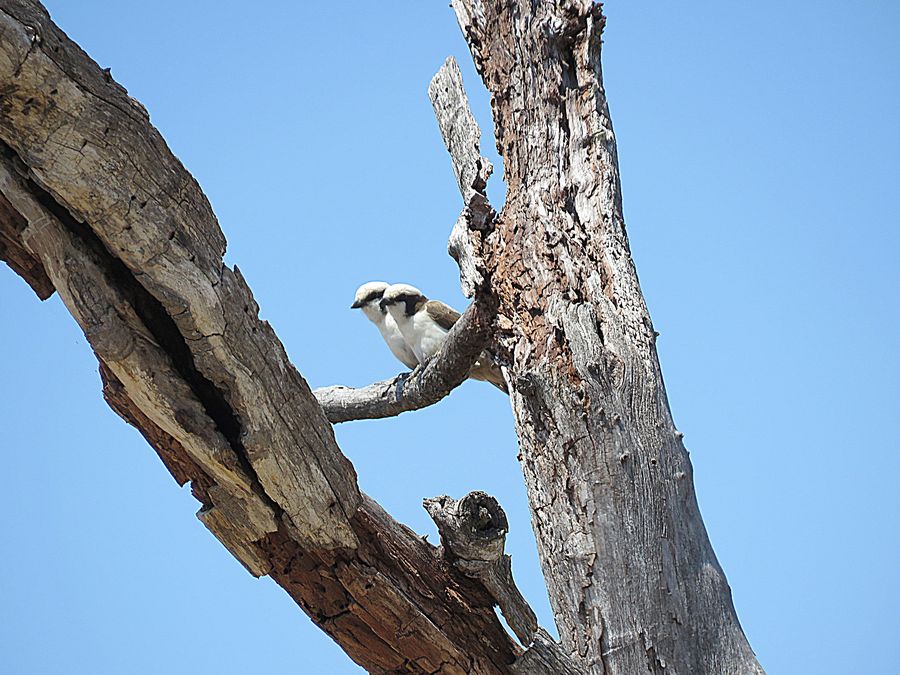
White-crowned Shrikes - have a dark line through the eyes that
extends onto cheeks and ends in black nape. Found in woodlands
with open areas. Perch from edge of a tree or shrub overlooking
open ground, making frequent forays to the ground to catch insects
and small vertebrates.
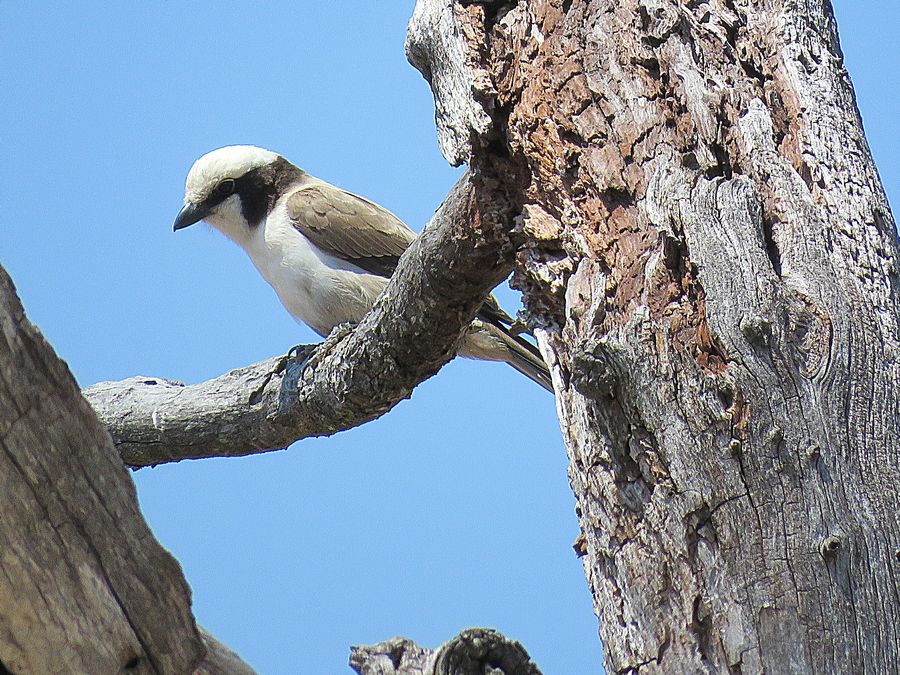
White-crowned Shrike
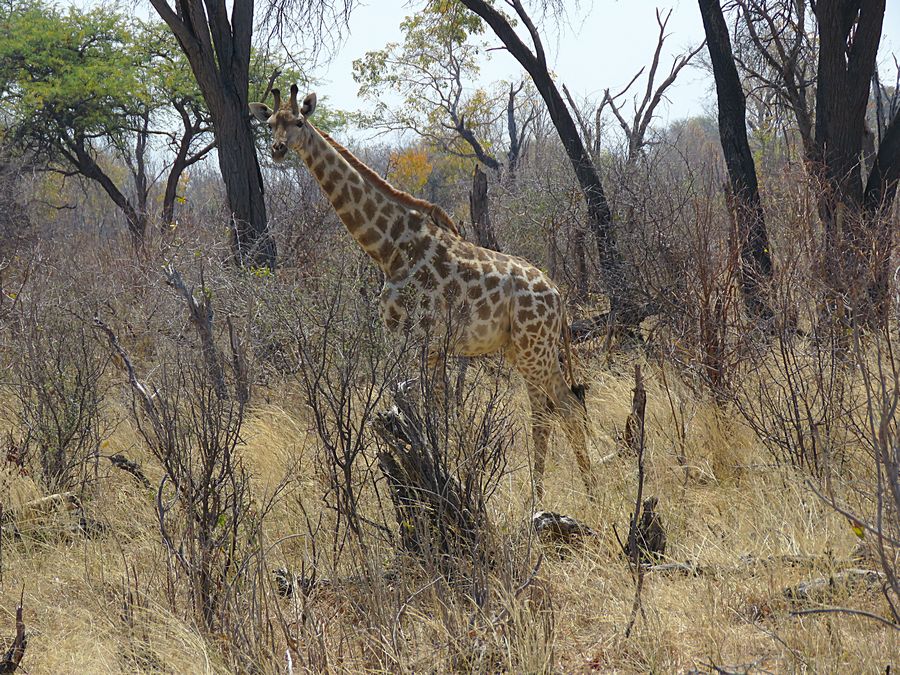
Giraffe looking at us; something we saw often.
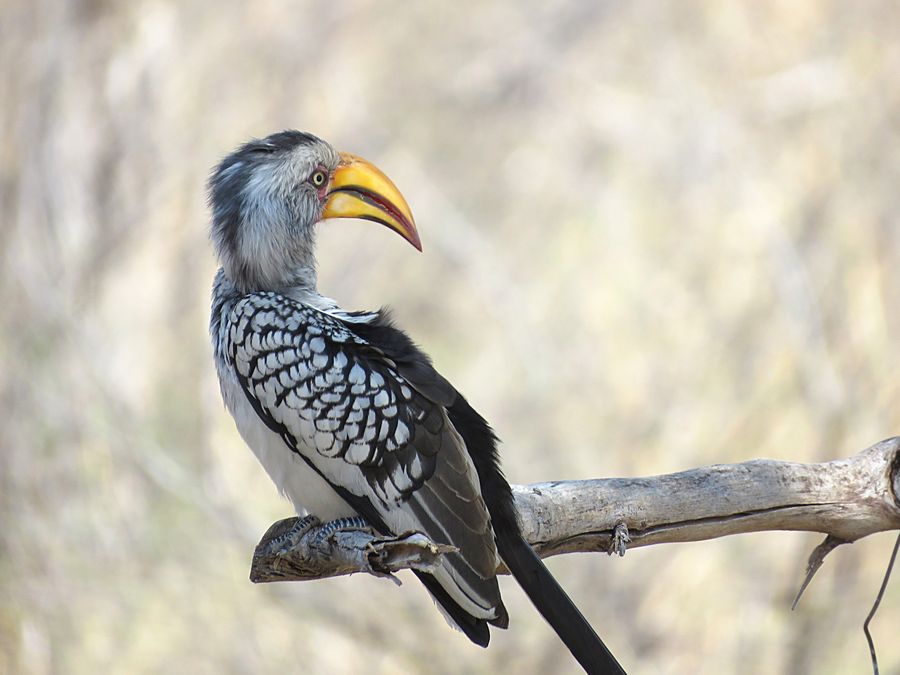
Southern Yellow-billed Hornbill - Gray hornbill with white spots
on wings. Forages in tree foliage and on the ground for insects.
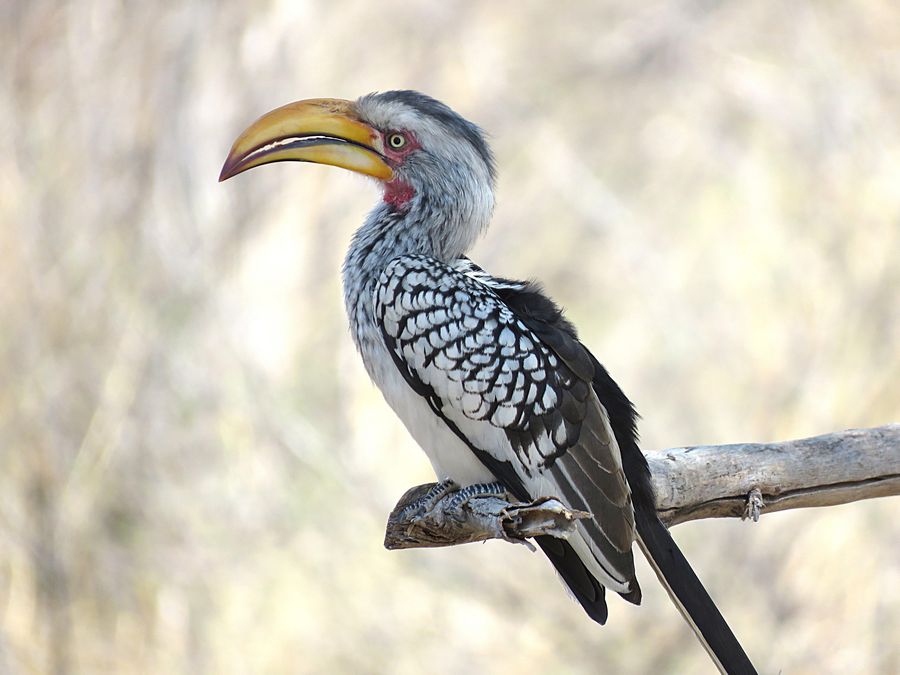
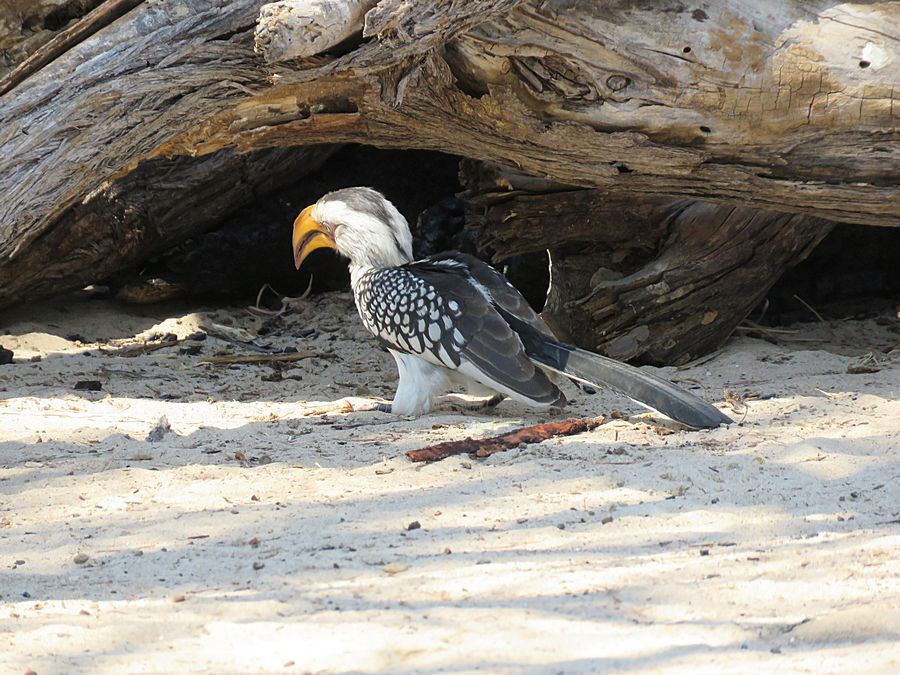
Southern Yellow-billed Hornbill foraging on the ground.
Note the long tail.
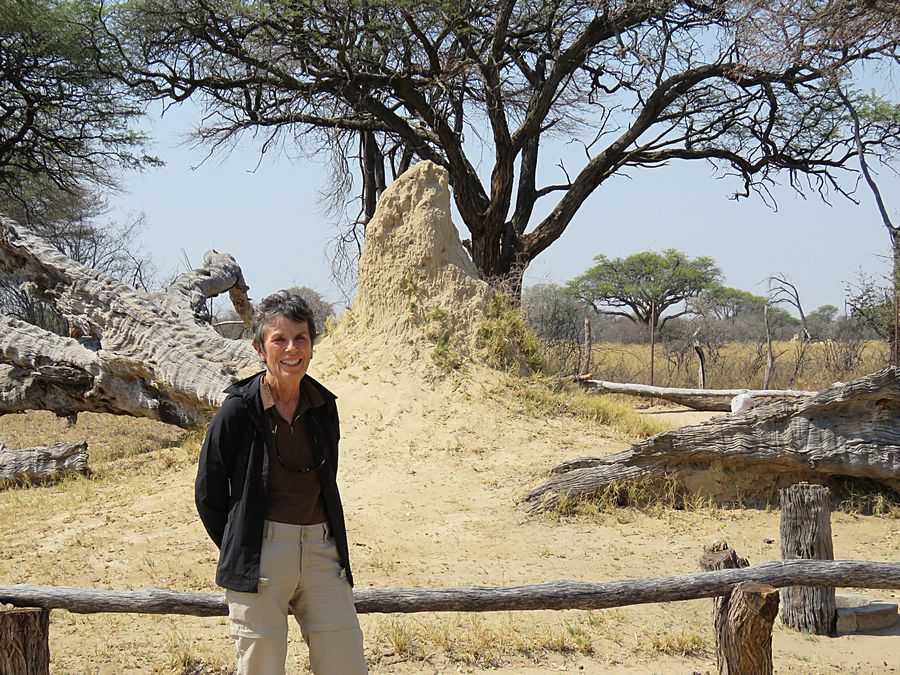
A human being standing in front of a termite mound at a
break area. Human beings are characterized by an erect posture and
bipedal locomotion, manual dexterity, and increased tool use, as
compared to other animals, and a general trend toward larger, more
complex brains, and societies.
Link to Part Three, Page Four - Hwange National Park, Zimbabwe
Pat's Home Page